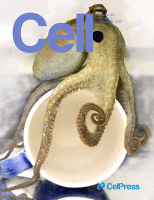Research
We study human health and disease through the trillions of bacteria that live in our gut. These bacteria not only make up more than half the cellular composition of the human body, they also generate a vast array of byproducts that serve as currencies for exchange of information between our body and the outside world.
Of all the external factors that can influence the trading between bacteria and human cells, the amino acids, sugars, fatty acids, and fibers that make up our diet are the most ubiquitous and potent. The emergent patterns of microbial growth and productivity reveal both novel, and long-evolved relationships between host and microbe that can be leveraged for health.
Our goal is to define the mechanistic underpinnings of diet’s extraordinary impact on the gut microbiome and translate these findings into prospective human studies in patients suffering from inflammatory and metabolic diseases in order to add a powerful dimension to the diagnosis and treatment of inflammatory bowel diseases (IBDs), diabetes, and cancer.
We are additionally studying the potential host-microbe underpinnings of currently untreatable and unpredictable phenomena in IBD such as ileal fibrosis, peri-anal fistulae, extra-intestinal complications/manifestations that severely affect quality of life in these patients.
Suzanne Devkota, Science 2016
Current Projects
Dietary Drivers of Microbial Function- Overconsumption, Starvation, and Everything in Between
We design custom diets and feeding protocols addressing microbiome-based questions across the spectrum of dietary pathologies such as overconsumption in chronic inflammatory and metabolic diseases, and starvation and malnutrition, as well as lifestyle choices such as vegan vs. omnivore. In vivo studies combined with in vitro screening of responsive microbes and their metabolites allows us to develop robust comparative dietary studies for testing prospectively in patients.
The New Microbiology: Bacterial Cultivation & Comparative Genomics
We are actively sourcing novel culture ingredients and growth platforms to improve in vitro isolation of bacteria. These tools can be leveraged to efficiently screen microbial metabolic pathways, create defined consortia, and aid in gnotobiotic mouse studies. In collaboration with industry partners we are testing and validating new tools and applications in order to bring microbial sciences up to speed with current sequencing technologies.
Additionally, we are interested in better understanding the genomic variation among strains of the same species in the context of human health and disease. A large effort in our lab is dedicated to isolation of mucosal-associated microbiota in the small and large bowel in specific subsets of human IBD and performing comparative genomics on our most recurrent organisms across these subsets. Identification of core and variable genomic components directs in vitro and in vivo functional studies with the goal of better understanding that particular organism’s role in disease. We are very happy to share our strains and genomes (when available). Please see our current strain collection in the menu bar.
Ileal Fibrosis & Creeping Fat
Fibrosis of the ileum in Crohn’s Disease is an irreversible complication currently only treatable by surgical intervention. Many of these patients will go on to have recurrent fibrosis followed by repeated surgeries. Intense efforts to understand the mechanisms of ileal fibrosis and early predictors of this complication are currently underway. We are particularly interested in the role of mesenteric fat hyperplasia, called “creeping fat” in ileal fibrosis due to its appearance of creeping expansion around the sites of ileal inflammation. It is a hallmark feature of the disease and yet an unexplained phenomena. We have identified specific microbial translocation that influence cellular phenotypes in the mesenteric depot and are further exploring the unique features of these organisms that confer their fitness in adipose tissue.
The Other 10%
Additional projects in our lab are exciting collaborative projects with investigators in other fields. These include a neuron-on-a-chip approach to studying the role of microbial metabolites in Parkinson’s Disease, molecular and microbial imprinting on adolescent females with depressive disorder who have depressed mothers, the effect of maternal opioid abuse on infant cognitive development, and more.
Select Publications
Martin, A., Ecklu-Mensah, G., Ha, C.W.Y. et al. Gut microbiota mediate the FGF21 adaptive stress response to chronic dietary protein-restriction in mice. Nat Commun 12, 3838 (2021). — (View Publication)
Ha CWY, Martin A, Sepich-Poore GD, Shi B, Wang Y, Gouin K, Humphrey G, Sanders K, Ratnayake Y, Chan KSL, Hendrick G, Caldera JR, Arias C, Moskowitz JE, Ho Sui SJ, Yang S, Underhill D, Brady MJ, Knott S, Kaihara K, Steinbaugh MJ, Li H, McGovern DPB, Knight R, Fleshner P, Devkota S. Translocation of Viable Gut Microbiota to Mesenteric Adipose Drives Formation of Creeping Fat in Humans. Cell. 2020 Oct 29;183(3):666-683.e17. — (View Publication)
Dabke, K., Hendrick, G., Devkota, S. The microbiome in metabolic syndrome. J. Clin Invest. J Clin Invest. 129(10):4050-4057 (2019) — (View Publication)
Devkota, S., Wang, Y., Musch, M., Leone, V., Fehlner-Peach, H., Nadimpalli, A., Antonopoulos, D., Jabri, B., Chang, EB. Dietary fat-induced taurocholic acid production promotes pathobiont expansion and colitis in IL-10-/- mice. Nature. 487(7405):104-108. (2012) — (View Publication)


